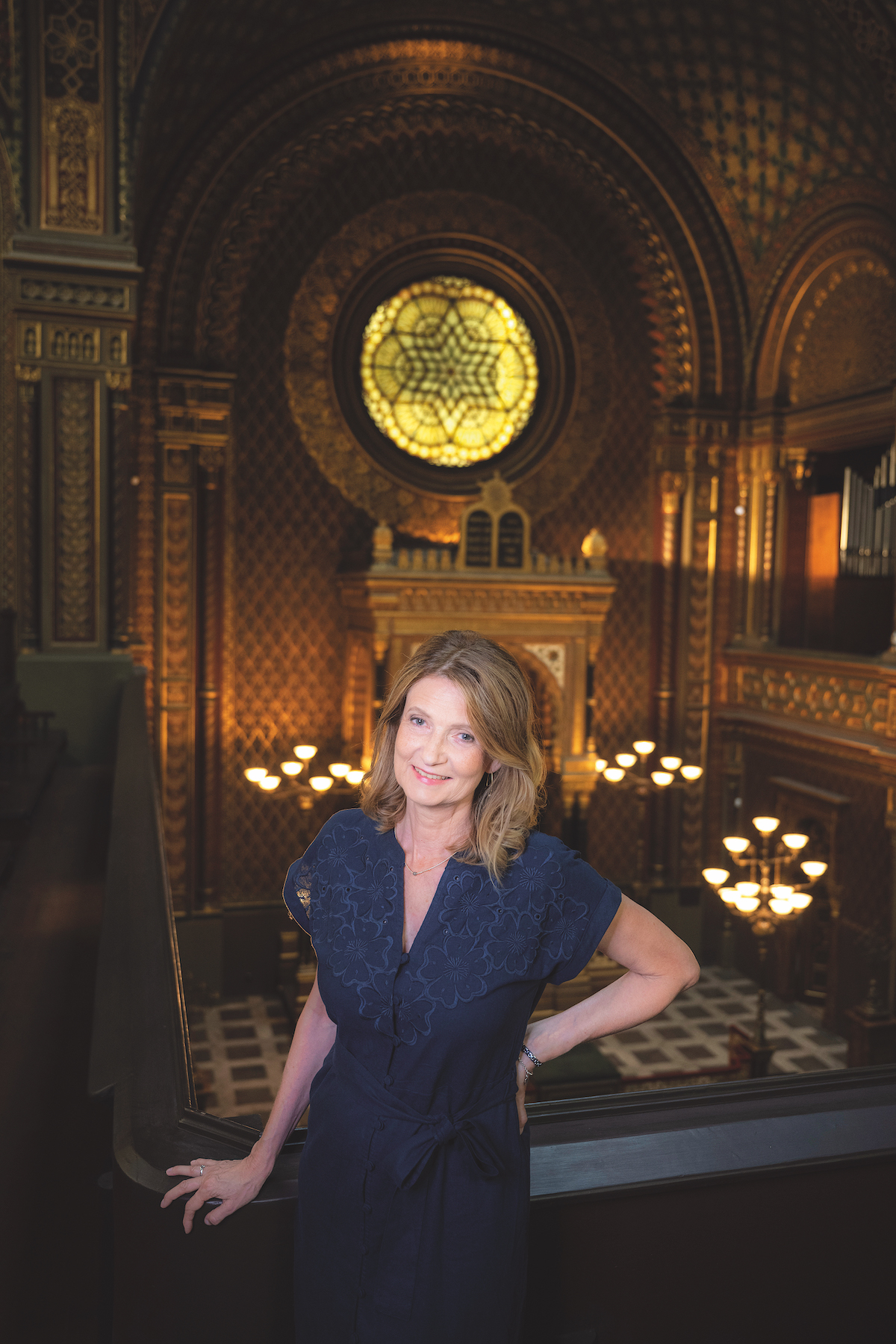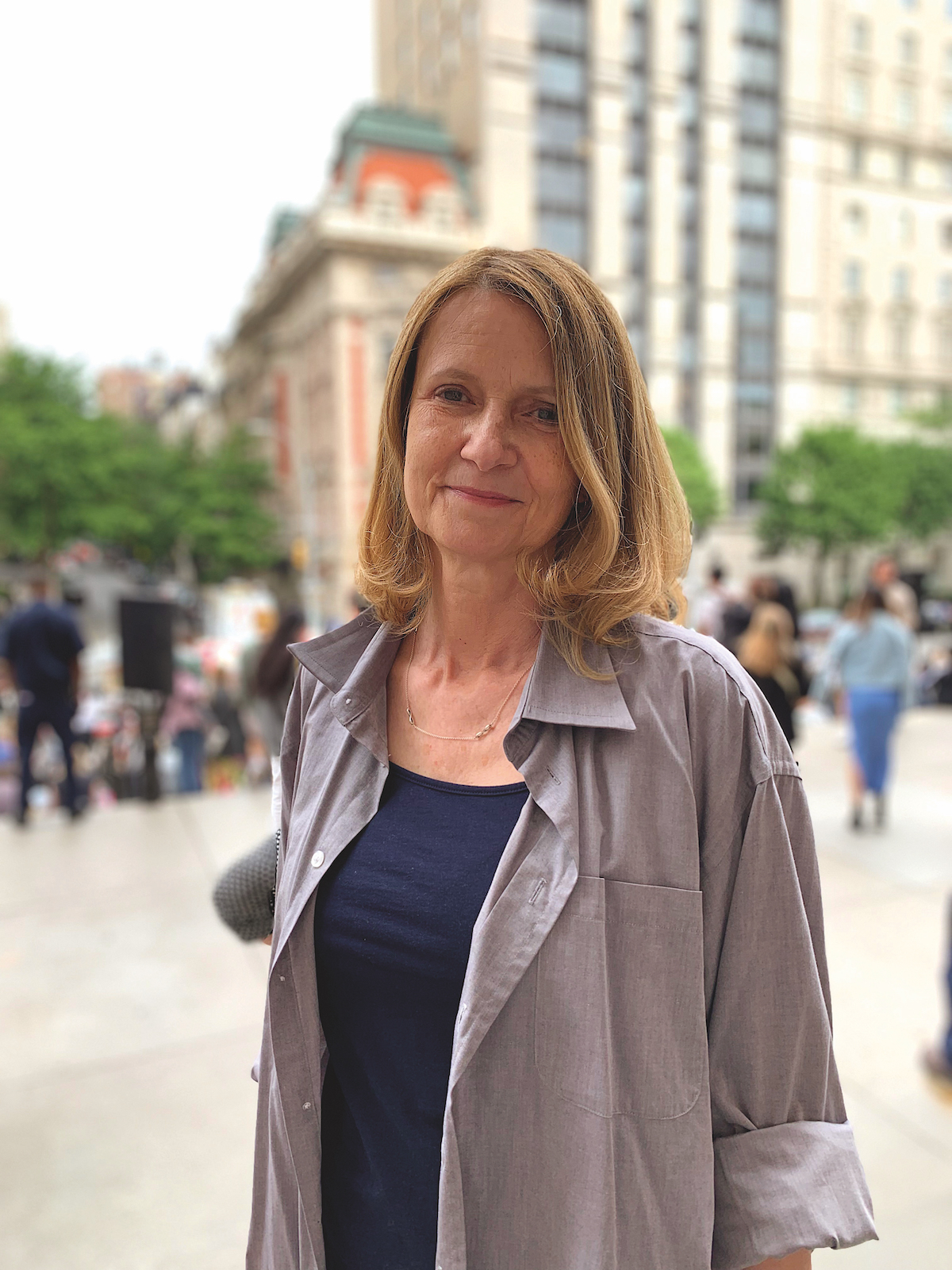“Our mission is a never-ending process”

Pavla Niklová, Director of the Jewish Museum in Prague
Text: Martina Hošková and M.Zisso; Photo: Archive
“The Museum’s Board decided that it was time for a change. I will do my best to fulfill their expectations,” promises Pavla Niklová, the new director of the Jewish Museum in Prague, and outlines the path she and her team are going to take: “Arts and culture are a very true reflection of society, its direction, and its values. We hope to develop the Jewish Museum in Prague as an open center of education and discussion.” Does she have a more specific plan yet? And what professional experience will the new director draw on?
Please tell us about yourself.
I come from Prague, I’m an arts manager, I have no artistic talent myself – my kids would tell you that I can’t draw an apple – but I have dedicated my career to presenting artistic work. I can’t imagine my life without theater, music, and exhibitions. I have almost three decades of experience at prominent arts organizations in the United States and in the Czech Republic. My focus is the conception, production, and promotion of innovative programs that encourage multidisciplinary collaboration and exchange. In addition, I have experience in fundraising, public relations, and the preparation of grants agendas. For the entirety of my life, I have been trying to communicate just how much the arts can offer to other people by sharing unique opportunities that allow them to become a part of something different, fresh, and stimulating.
What were the steps that brought you to the position of the Director of the Jewish Museum in Prague?
I used to work at the museum for five years as head of the Development and Public Relations Department. It was a very valuable professional experience, I met a lot of people who are still my friends, and at the same time it opened up a new world of knowledge that has an important place in my life.
For me the most important and the interesting project that I was in charge of at the museum was the„Year with Jewish Culture – 100 years of the Jewish Museum in Prague“. The purpose of the anniversary was to present the museum as a unique holding place of modern Jewish history, which is intertwined with Czech culture and society. We approached art institutions, individual artists, Jewish communities, foreign cultural centers, and other organizations and asked them if they could prepare, or possibly dedicate, one of their programs to the Jewish Museum on its centenary. The response exceeded our expectations, and we ended up working with one hundred and twenty partners, and the Jewish Museum participated in programs in fifty different cities in the Czech Republic and around the world.
Now, I wasn’t actively looking for work in Prague, however, when I found out that the museum opened a competition for a new director, I realized that I started thinking about it, and several friends encouraged me to apply. It is a once in a lifetime opportunity, and I feel deeply honored to have been selected to lead such an important Czech Jewish cultural institution.
You are filling in the “big shoes” of Leo Pavlát, who led the museum for almost 30 years. Do you have any special concerns?
Leo Pavlát joined the museum at a time when it had been de-nationalized / restituted and returned to the Jewish community. He participated in its brand-new beginning, when it was necessary to catch up on a lot of neglected work, take care of the collections, and start fulfilling the museum’s mission as an institution that cares about the heritage of the Jewish community in the Czech lands – which was devastated not only during the war, but also during the following years by the communist regime. We will of course continue this mission, it is a process that is never-ending, and I feel a great responsibility to take on this task. Leo Pavlát was the head of the museum for almost thirty years, and the Museum’s Board decided that it was time for a change. I will do my best to fulfill their expectations.
You are back in Prague after 10 years in the USA. How was your American experience?
I lived in New York for the last 13 years, about which many people say that it’s ‘not America’. In 2010, the Czech Ministry of Foreign Affairs appointed me as Cultural Attaché. I was tasked with overseeing all aspects of the Czech Center New York at the newly-restored, century-old Bohemian National Hall on New York City’s Upper East Side. It is very difficult to attract audiences because in New York there are tons of events happening every night. However, we were lucky to partner with some major U.S. institutions such as the Museum of Modern Art, the 92nd Street Y, Film Society at Lincoln Center, Museum of the Moving Image, Columbia University, Mannes School of Music, Brooklyn Academy of Music, New Museum, PEN World Voices Festival, Austrian Cultural Forum, OMI International Arts Center, Socrates Sculpture Park, and more. Over the course of the last nine years, I worked as the Executive Director of the Václav Havel Library Foundation, a nonprofit organization established in the United States to promote human rights through the arts, and to extend the legacy of playwright, dissident, and former president of Czechoslovakia and the Czech Republic, Václav Havel. We have accomplished the following goals: dedication of the bust of Václav Havel in the U.S. Capitol on the occasion of the 25th anniversary of the Velvet Revolution, we started an exchange program for Czech and American theater students, and, with the support of a grant from the Carnegie Corporation, we filmed interviews with ten prominent U. S. politicians, academics, writers, and artists, including Bill Clinton, Timothy Snyder, Henry Kissinger, Suzanne Vega, and more.
We have started the annual Disturbing the Peace Award, which recognizes dissident writers around the world.
In 2017, we launched the inaugural year of the theater festival Rehearsal for Truth, a showcase of Central European performing arts. This program has been supported by the New York City Department of Cultural Affairs and the New York State Council on the Arts.
We have organized an annual fundraiser together with the Bohemian Benevolent and Literary Association, presenting the annual Award for Unparalleled Service to the Czech and Slovak Communities. Among its recipients were Secretary Madeleine Albright, Ambassador Craig and Dorothy Stapleton, Ambassador William and Wendy Luers, Sir Tom Stoppard, and Czech-American artist and author Peter Sis.

Pavla Niklová, Director of the Jewish Museum in Prague
They say you can only love or hate New York, nothing in between…
I love New York, it is a big and sometimes hard city to live in, but it will always be one of my homes. Apart from other things, it is a so-called sanctuary city, meaning that municipal laws protect unauthorized immigrants from deportation, and I believe that one of the most important things about New York is that it honors the original concept that America is a country of immigrants. I met so many people who helped me and became my friends. My kids went to school there, and had the opportunity to experience the city’s multicultural environment. Some of my son’s best friends are first and second generation immigrants from Tibet, the Philippines, India, and other countries and cultures.
For some time, we lived in Queens, which is the most linguistically and ethnically diverse place in the US. In the neighborhood of Jackson Heights, you can taste an incredible number of authentic cuisines made by and for local people. Our apartment is five minutes from the Forest Hills Stadium, where the U.S. Open used to take place, and which now hosts major concerts. Paul Simon and Bob Dylan played there in the same week to celebrate the fact that they both played the stadium fifty years ago. So, New York is not only Manhattan.
Do you enjoy Prague the same way? Or are you absorbed with working on the next 5 years’ vision of the Museum under your leadership?
So far, I don’t have much free time left, but I’ve been catching up with my family and some friends, and enjoying the summer. I’m a city person, and I enjoy being in Prague, which has been transforming into a very friendly place for living.
The millennia-long history of the Czech Jewish community is an essential part of the museum’s exhibitions, which document its significance and scope. As in so many other places in the world, Jews have played a distinctive role in the development of human society, and have created a distinctive culture in which deep traditions intertwined with reactions to their immediate surroundings. The museum’s rich collections can be used and presented in new contexts, in exhibitions that are designed as a search for new relationships and connections and can thus reach audiences on a personal level, as well as provide a space for comparison with their own experience.
With my colleagues, we would like to see the museum involved in various joint Czech and international projects that allow it to present itself outside the Old Town and meet the public on special cultural occasions. We will take particular care to work with new audiences, as well as with the financial resources that should be associated with and could result from new programs.
Arts and culture are a very true reflection of society, its direction, and its values. We hope to develop the Jewish Museum in Prague as an open center of education and discussion, first-rate museum work, and lively communication with the Czech and international public.

